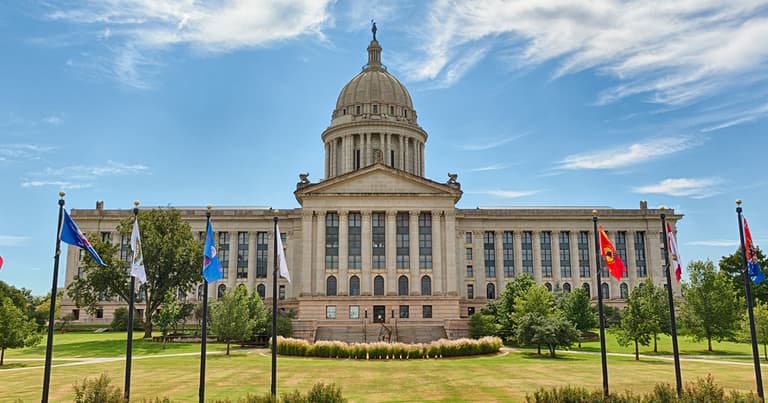
Budget & Tax , Health Care
Ray Carter | February 11, 2020
Bill would save state money, then give savings to tribal governments
Ray Carter
Oklahoma state government could generate millions of dollars in savings by cost-shifting Medicaid costs to the federal government, but half of state government savings would then be given to tribal governments under legislation approved by a Senate committee on Monday.
Senate Bill 1370, by state Sen. Greg McCortney, is designed to take advantage of federal Medicaid funding for American Indians. The federal government pays 100 percent of costs for treatment of Medicaid-eligible individuals who receive care through Indian Health Services, Tribal, and Urban Indian (I/T/U) facilities. But when those same individuals are treated at nontribal facilities, state government must cover roughly 40 percent of the Medicaid costs.
“Right now the way it works in the state of Oklahoma, tribal facilities, the federal government pays 100 percent of a Medicaid enrollee that goes and receives care from a tribal facility,” McCortney told legislators. “In 2016, they expanded the definition of ‘tribal facility’ and they now interpret the language to be ‘received care through a tribal facility,’ so if a tribe has a contract with any provider, then that will be a 100-percent federal match, instead of a 60-40, which is what we normally pay. So this bill will encourage tribes to enter into those contracts with facilities across the state.”
A letter issued by the federal Centers for Medicare and Medicaid Service during the final year of the Obama administration informed states that tribal facilities could enter “into care coordination agreements” with non-Indian Health Services/tribal providers and the federal amounts “paid by the state for services requested by facility practitioners in accordance with those agreements would be eligible” for the 100-percent federal match given to Medicaid patients served by IHS facilities. That guidance was reiterated by the federal agency in January 2017.
McCortney said he did not have any fiscal estimates, but said the measure “should incur a tremendous amount of cost savings for the state of Oklahoma.” In the current state budget year, McCortney said $223,000 has been spent as the result of tribal health entities reaching agreements for treatment with nontribal providers, but in the prior year more than $511 million “could have gone through this program.”
SB 1370 would earmark 50 percent of any resulting state savings for tribal governments, even though tribal governments do not directly contribute to the state payments now made for Medicaid coverage of American Indians at nontribal facilities.
The remainder of the savings would be used to boost Medicaid provider rates.
“Even with a 50-50 split, you’re talking about quite possibly $100 million in our favor,” McCortney said.
SB 1370 passed the Senate Health and Human Services Committee without opposition.
The legislation, which could effectively direct millions of dollars in state taxpayer funding to tribal governments, comes at the same time some of those tribal governments are suing the state of Oklahoma in a dispute over renegotiation of casino gaming fees. Tribal governments have conceded that fee rates are subject to renegotiation, but have refused to enter into those negotiations with state officials, demanding that state officials first agree gaming compacts with the existing lower rates automatically renewed on January 1, 2020.
Note: This article has been corrected. The article originally said SB 1370 would next advance to the Senate floor. Instead, the bill next faces a hearing in another committee.

Ray Carter
Director, Center for Independent Journalism
Ray Carter is the director of OCPA’s Center for Independent Journalism. He has two decades of experience in journalism and communications. He previously served as senior Capitol reporter for The Journal Record, media director for the Oklahoma House of Representatives, and chief editorial writer at The Oklahoman. As a reporter for The Journal Record, Carter received 12 Carl Rogan Awards in four years—including awards for investigative reporting, general news reporting, feature writing, spot news reporting, business reporting, and sports reporting. While at The Oklahoman, he was the recipient of several awards, including first place in the editorial writing category of the Associated Press/Oklahoma News Executives Carl Rogan Memorial News Excellence Competition for an editorial on the history of racism in the Oklahoma legislature.